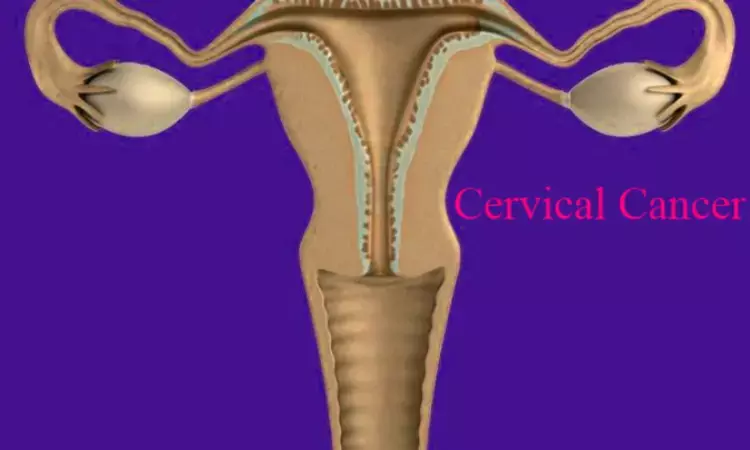- Home
- Medical news & Guidelines
- Anesthesiology
- Cardiology and CTVS
- Critical Care
- Dentistry
- Dermatology
- Diabetes and Endocrinology
- ENT
- Gastroenterology
- Medicine
- Nephrology
- Neurology
- Obstretics-Gynaecology
- Oncology
- Ophthalmology
- Orthopaedics
- Pediatrics-Neonatology
- Psychiatry
- Pulmonology
- Radiology
- Surgery
- Urology
- Laboratory Medicine
- Diet
- Nursing
- Paramedical
- Physiotherapy
- Health news
- Fact Check
- Bone Health Fact Check
- Brain Health Fact Check
- Cancer Related Fact Check
- Child Care Fact Check
- Dental and oral health fact check
- Diabetes and metabolic health fact check
- Diet and Nutrition Fact Check
- Eye and ENT Care Fact Check
- Fitness fact check
- Gut health fact check
- Heart health fact check
- Kidney health fact check
- Medical education fact check
- Men's health fact check
- Respiratory fact check
- Skin and hair care fact check
- Vaccine and Immunization fact check
- Women's health fact check
- AYUSH
- State News
- Andaman and Nicobar Islands
- Andhra Pradesh
- Arunachal Pradesh
- Assam
- Bihar
- Chandigarh
- Chattisgarh
- Dadra and Nagar Haveli
- Daman and Diu
- Delhi
- Goa
- Gujarat
- Haryana
- Himachal Pradesh
- Jammu & Kashmir
- Jharkhand
- Karnataka
- Kerala
- Ladakh
- Lakshadweep
- Madhya Pradesh
- Maharashtra
- Manipur
- Meghalaya
- Mizoram
- Nagaland
- Odisha
- Puducherry
- Punjab
- Rajasthan
- Sikkim
- Tamil Nadu
- Telangana
- Tripura
- Uttar Pradesh
- Uttrakhand
- West Bengal
- Medical Education
- Industry
Copper IUDs better than hormonal IUDs in reducing cervical cancer risks

Studies in past have revealed that there is a reduced risk of cervical cancer among women who had used an intrauterine contraceptive. A 2017 systematic review of 17 case-control studies found that intrauterine devices (IUDs) were protective against cervical cancer. A new study has found which IUD is more effective in cancer prevention.
Patients who used copper intrauterine devices (Cu IUD) were found to have a lower risk of cervical cancer compared to users of the levonorgestrel-releasing intrauterine system (LNG-IUS), according to a Columbia study recently published in Obstetrics & Gynecology.
Studies from the 1980s suggested a reduced risk of cervical cancer among women who used an intrauterine contraceptive, though those studies did not differentiate between the varying types of IUDs. Furthermore, much of the data from those studies was collected prior to the availability of most hormonal IUDs (LNG-IUS).
By standardizing four decades' worth of data from the Columbia University Irving Medical Center database through the OMOP Common Data Model and using high-level analytics developed within the Observational Health Data Sciences and Informatics (OHDSI) collaboration, the research team ran a retrospective cohort analysis of more than 10,000 patients who received IUDs.
The diagnosis of high-grade cervical neoplasia was 0.7% in the Cu IUD cohort and 1.8% in the LNG-IUS cohort.
"Copper and hormonal IUDs may have different physiological effects on the female genitourinary system," says Matthew Spotnitz, MD, MPH, a Postdoctoral Research Scientist within the Department of Biomedical Informatics and lead author of this study. "Consequently, the risk of cervical neoplasms may be different for copper and hormonal IUD users. Our findings may help patients and healthcare providers make informed decisions about whether the benefits of hormonal IUD use, compared to copper IUD use, are greater than the risks."
Spotnitz noted that the research team hopes to lead a network study across other databases within the OHDSI network, which spans 19 countries, 133 unique databases converted to the OMOP CDM, and more than one billion patient records.
"The proportions of women who use copper and hormonal IUDs may vary among institutions," Spotnitz says. "Overall, IUD use has become more popular over the past 20 years. Copper IUD use has remained constant whereas hormonal IUD use has increased. The rising popularity of hormonal IUDs may be related to the fact that they decrease the pain and bleeding of menses."
The study notes that more than 100 million women use IUDs as contraception around the world, and these findings have implications for the larger population of current IUD users.
For more details click on the link: http://dx.doi.org/10.1097/AOG.0000000000003656
Hina Zahid Joined Medical Dialogue in 2017 with a passion to work as a Reporter. She coordinates with various national and international journals and association and covers all the stories related to Medical guidelines, Medical Journals, rare medical surgeries as well as all the updates in the medical field. Email: editorial@medicaldialogues.in. Contact no. 011-43720751
Dr Kamal Kant Kohli-MBBS, DTCD- a chest specialist with more than 30 years of practice and a flair for writing clinical articles, Dr Kamal Kant Kohli joined Medical Dialogues as a Chief Editor of Medical News. Besides writing articles, as an editor, he proofreads and verifies all the medical content published on Medical Dialogues including those coming from journals, studies,medical conferences,guidelines etc. Email: drkohli@medicaldialogues.in. Contact no. 011-43720751


